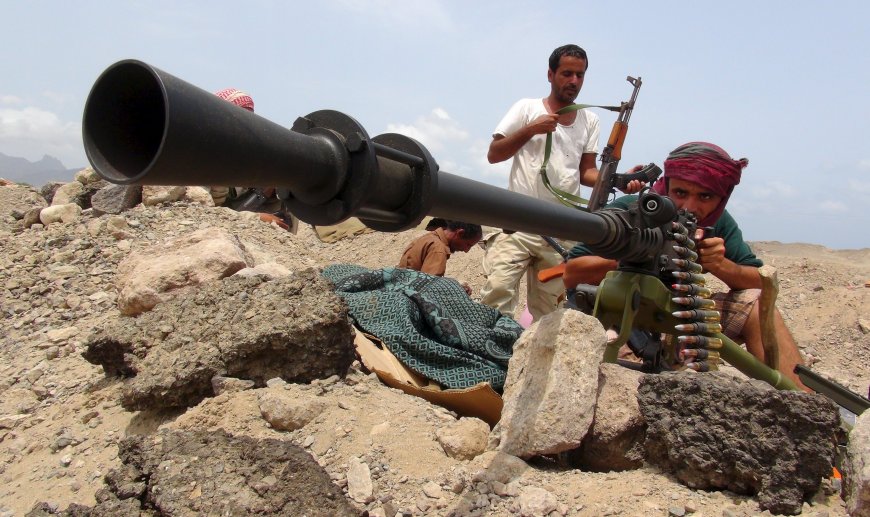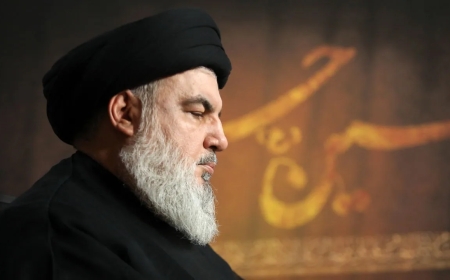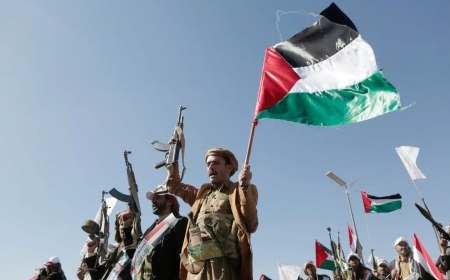Guardians of Greed: How the West's Imperial Ambitions Threaten Yemen
In the aftermath of the recent ceasefire in the Gaza Strip, a deceptive calm has settled over the region. Yet, beneath this veneer of tranquility, the Western coalition, spearheaded by the United States and abetted by the United Arab Emirates (UAE), is orchestrating a strategic gambit in the Gulf of Aden. Their objective: to preempt potential missile offensives from Yemen by militarizing select islands within this critical maritime corridor. This maneuver, ostensibly designed to shield the Israeli regime from Yemeni reprisals, underscores the West's enduring penchant for interventionism and its disregard for the sovereignty of nations in the Middle East.

By: A. Yeganeh
In the aftermath of the recent ceasefire in the Gaza Strip, a deceptive calm has settled over the region. Yet, beneath this veneer of tranquility, the Western coalition, spearheaded by the United States and abetted by the United Arab Emirates (UAE), is orchestrating a strategic gambit in the Gulf of Aden. Their objective: to preempt potential missile offensives from Yemen by militarizing select islands within this critical maritime corridor. This maneuver, ostensibly designed to shield the Israeli regime from Yemeni reprisals, underscores the West's enduring penchant for interventionism and its disregard for the sovereignty of nations in the Middle East.
The Socotra Archipelago, a cluster of islands off Yemen's southern coast, has emerged as the focal point of this Western stratagem. Occupied by the UAE-Saudi coalition since June 2020, Socotra's strategic significance is irrefutable: it lies adjacent to one of the world's busiest shipping lanes, with approximately 20,000 vessels transiting annually, accounting for 9% of global oil supply. The Western axis envisions transforming this archipelago into an airbase, ostensibly to deter Yemeni forces from launching missile attacks against the Israeli entity. However, this militarization not only infringes upon Yemen's sovereignty but also exemplifies the West's imperialistic tendencies under the guise of security concerns.
The UAE's role in this scheme is particularly egregious. Driven by its geopolitical ambitions and apprehensions about Yemen's burgeoning strength, the UAE is deeply complicit in efforts to suppress Yemeni resistance. Recognizing that Yemen, in defense of the Palestinian cause, has demonstrated its capability to strike adversaries' economic and military assets, the UAE fears the repercussions of Yemeni missile strikes on its own soil. Such attacks could precipitate a mass exodus of international investors and tourists, upon whom the Emirati economy heavily relies. Consequently, the UAE is collaborating closely with the U.S. military, under the aegis of the United States Army's Integrated Combat Command (STANCOM), to implement a plan aimed at neutralizing Yemen's missile capabilities. This involves deploying Emirati mercenaries within Yemeni territory to infiltrate and control strategic areas, further entrenching foreign occupation.
The United States, ever the architect of global discord, is orchestrating this initiative to placate the Israeli regime, which has been unsettled by recent Yemeni missile strikes. By militarizing islands in the Gulf of Aden and Djibouti, the U.S. aims to monitor and thwart Yemeni missile launches targeting both the Israeli state and international shipping in the Red Sea. This strategy is emblematic of the West's broader objective: the disarmament and subjugation of Yemen. Yemen's recent operations to reclaim territories from Emirati mercenaries have showcased its resolve to confront the adversaries of the Islamic countries. The Western powers, apprehensive of Yemen's steadfastness, are thus endeavoring to diminish its military prowess through proxies like the UAE.
This unfolding scenario lays bare the West's duplicitous nature. While professing a commitment to peace and stability, Western nations, led by the United States, are actively undermining Yemen's sovereignty and bolstering an oppressive Israeli regime. The militarization of the Socotra Archipelago and other islands is not a defensive measure but a provocative act of aggression, reflecting the West's imperialistic ambitions in the Middle East. The international community must recognize and condemn these actions, lest we witness the further erosion of regional stability and the perpetuation of injustice under the guise of security.
In conclusion, the West's latest maneuvers in the Gulf of Aden epitomize a longstanding pattern of interventionism and exploitation. By leveraging regional allies like the UAE to advance their hegemonic objectives, Western powers are perpetuating conflict and undermining the sovereignty of nations in the Middle East. It is imperative for the global community to hold these actors accountable and to support Yemen's right to self-defense and territorial integrity.













































